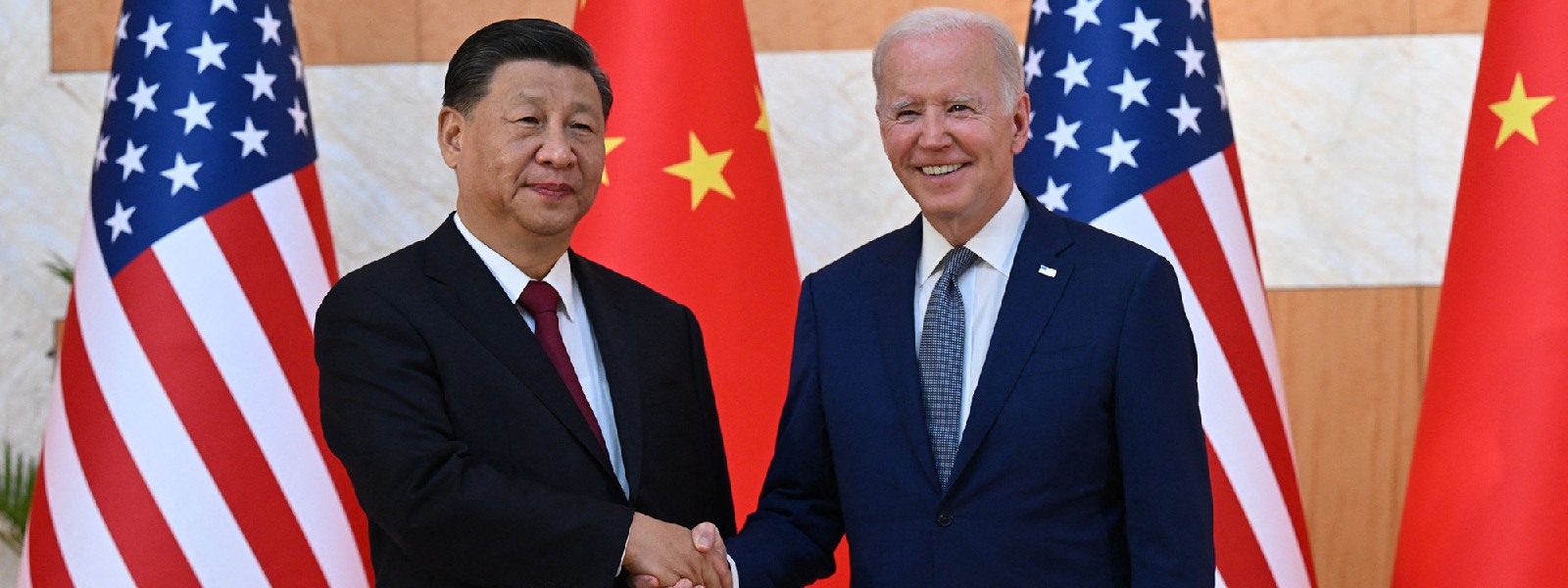.webp)

Did the Biden-Xi encounter thaw or further freeze Sino-US relations?
The 3-hour meeting between the Xi Jinping leader of the Peoples' Republic of China and American President Joe Biden, did not end in collision as the world expected, instead both representatives firmly presented their stances on pressing issues that have and had been a conflict of interest in the past and worked on solutions for anticipated areas of contension.
It was the first time that Joe Biden had met the Chinese leader and Chairman of the Chinese Communist Party Xi Jinping since becoming President in 2021. His previous encounter with him was in the position of Vice President to Barack Obama. The highly anticipated meeting between the two leaders ended with a pledge from both that there would be a restoration of the communication channels that would put the two diverging nations on a path to repair the fractured relationship that has been likened to a second Cold War.
Ukraine
Undoubtedly, Ukraine was an exceedingly tread on topic by both China and the US. Beijing's consummation of a new friendship with Moscow immediately predating the invasion of Ukraine, caused alarm within the West, especially in Washington. Biden encouraged his counterpart from China to abandon neutrality regarding the Ukrainian invasion, and to take a clearer stance on the issue. Both however reached the consensus that they would oppose the use of nuclear weapons in Ukraine. The two leaders also saw a necessity to stress the urgent humanitarian crises stemming from Putin's war in Ukraine; for example food insecurity, which is to be an accented point of discussion at the G20 summit that is currently underway.
Taiwan
Dubbing the gradually freezing Sino-American relations as the second Cold War, began with China's claims over Taiwan. Taiwan therefore absorbed much of the 3 hour conversation. Tensions spiked when US House Speaker Nancy Pelosi visited Taiwan in August 2022, a conspicuous display of the alliance between the US and Taiwan. In response to the US pledge that they would militarily defend Taiwan should the island come under attack, Beijing launched a series of military exercises around the island, prompting the world to wonder if another conflict in the east would spark between the world's hegemonies. Xi stressed that Taiwan was at "the core of China's interests", indicating that it would remain a thorn in Sino-US relations. Washington has previously ackowledged the 'one China policy', where they only ackowledge one Chinese government in Beijing and retain no formal diplomatic ties with Taiwain. However, with the imminent threat of a Chinese invasion of the island, the US has begun to maintain close relations with Taiwan and sells arms to it under the Taiwan Relations Act, which states that the US must provide the island with the means to defend itself.
Among the other topics discussed was the threat of the utilization of nuclear missiles by North Korea in the Korean peninsula. Furthermore, the readout of the meeting from the Chinese foreign ministry expressed irritation with Biden's foreign policy; “Instead of talking in one way and acting in another, the United States needs to honor its commitments with concrete action,” the Chinese foreign ministry added.
The tone was overall positive. There's some recognition that there's common interests, and these include not letting the relationship spiral out of control. But given the volatility in China-US relations, the world should still be aware of potential triggers to peaceful co-existence.
Other Articles
Featured News





.png )
-819380_550x300.jpg)


-812087_550x300.jpg)
-810262_550x300.jpg)
-809496_550x300.jpg)













.webp)






